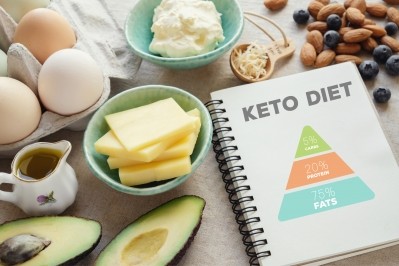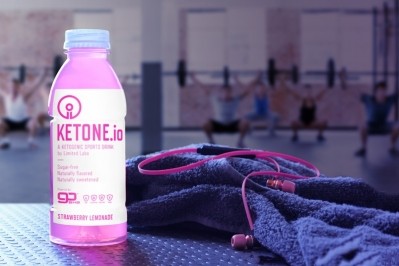'20 to 30 elite sportspeople/teams' involved in ketone research
This content item was originally published on www.nutraingredients.com, a William Reed online publication.
“I would say I’ve got at least one email a day [asking to buy the drink], if not more, for years and years,” Kieran Clarke, professor of physiological biochemistry at the University of Oxford, told us at the recent Sports Nutrition Conference (#SNC16) organised by NutraIngredients in partnership with trade group European Specialist Sports Nutrition Alliance (ESSNA).
“And I keep them all and I always answer them and I promise I will tell them when it becomes available.”
Clarke says she has never sold the drink, which is not yet approved for sale in the EU, but is already protected by 24 patents through the University of Oxford spinout company T∆S Ltd.
Yet she added: “We’ve worked with quite a few teams from around the world, but we do research. We haven’t sold it to anyone.”
Clarke told us her team had tested the ketones in research projects involving around 20-30 teams and elite sportspeople mostly within endurance sports like cycling and triathlons as well as some gymnasts.
Some of the studies will be or have been published, others were pilot studies to determine whether the drink worked in terms of performance or recovery.
However Clarke could not name names because of non-disclosure agreements in place.
Cyclists deny use
Last year there were European press reports that the drinks were being used by cyclists at the Tour de France.
Three-time winner Chris Froome of the UK-based Sky cycling team adamantly denied using them or even knowing what they were in a press conference.
Sir David Brailsford, Sky’s sporting director, told press at the time his team had never used them.
So what is the substance behind all this fuss?
The ketones story
Professor Clarke and her team first started looking at the ketone esters when the research branch of the US army, the Defense Advanced Research Projects Agency (DARPA), offered up $10 million (€9.61m) to develop an efficient food for soldiers to take into battle.
Ketones are naturally produced by the liver as a back-up energy source.
“Ketosis is a way for humans to deal with starvation. Ketones are made in the liver from mobilised body fat, so when the body doesn't get enough fuel from food, internal fat stores are broken down to make ketones that feed the brain,” the Oxford website explains.
The Oxford team’s research so far has shown that drinking the synthetic ketone esters, chemically called (R)-3-hydroxybutyl (R)-3-hydroxybutyrate (D-13-hydroxybutyrate ester), could help endurance athletes from 'hitting the wall' and aid recovery after. But they seem to hold no benefits in exercise lasting less than 18 minutes.
A study published in July showed the drink could boost elite cyclist performance by 2%, an improvement which could mean the difference between winning or losing in elite sport.
Yet despite these potentially performance-enhancing properties and sports teams’ adamant denials of use, Clarke said the drinks were unlikely to cause trouble with the likes of the World Anti-Doping Agency (WADA).
“We’ve already approached WADA, and they said they couldn’t imagine why it couldn’t be used because it’s a form of energy.”
She said because the substance was produced naturally and metabolised immediately by the body, there would be no way to tell if someone had drunk one of the mixes.
But does this pose any ethical questions?
Not according to Clarke, who said the ketone drinks were comparable to ketogenic diets or glucose already used by athletes.
“Are you going to ban a ketogenic diet and make sure all of the athletes eat exactly the same food? The ethical question is: ‘Where do you stop?’ Where do you stop and say: ‘Alright you can drink a glucose drink but you can’t drink an electrolyte drink.’
“Where do you stop? Where do you say: ‘You’re using your intelligence to do this, so all the bicycles have to be the same.”
EU pending – US coming
Professor Clarke and her team have been seeking EU novel food approval from the UK’s Food Standards Agency (FSA) since 2011, but have hit several roadblocks. Concerns on who would use the ketone drinks have sent the researchers back to the lab to compile data on use in the general population.
In the US, market access has been much smoother with a Generally Recognized as Safe (GRAS) exemption now granted.
Yet Clarke said they would not be pumping the product out into the mass market.
“What we’ll do in the beginning is go for elite sportspeople […] to see how they use it. We want to get feedback, so we’re not going to put it on any supermarket shelves or anything like that.”
She said her company planned to sell the product online in the US, and only to those willing to provide the feedback it was looking for.
















